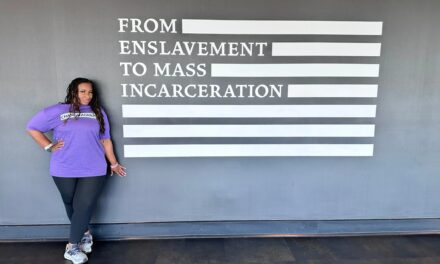They didn’t have guns when they tried to pull off a carjacking at the King City Food Mart on Warrior Road just before 10:00 pm on January 3, 2018. The twins, Kenneth and Elie Miller, should have known better than to try to take someone else’s car… just as Jordon Johnson and Reynold “Ray Ray” Bonner III had no business trying to rob a man at “Lambs”, a food mart on the west side of Birmingham.
Kenneth and Elie were only 18 when they snuck up on opposite sides of the already running car; they couldn’t have expected the owner of the vehicle to dash out of the food mart and defend his property and passenger with a gun. During the altercation, both ran away as the owner of the car fired shots at them. When Kenneth looked back, he realized that Elie wasn’t behind him. He returned to find his twin brother had collapsed in the back of the food mart and died.
Kenneth Miller is being charged under Alabama’s “Felony Murder Rule”. The “Felony Murder Rule” is an accomplice law that allows a defendant to be charged with first-degree murder for a killing that occurs while they are committing a dangerous felony. A dangerous felony is considered burglary, kidnapping, terrorism, or carjacking. Therefore, because Kenneth participated in a dangerous felony (a carjacking with his brother Elie), he can be charged with his brother’s murder. The indictment states that Kenneth Miller caused the death of Elie Miller by causing the shooter to justifiably shoot Elie Miller.
A week later Jordan Johnson, another 16-year-old, was charged under the same “Felony Murder Rule”. Reynold “Ray Ray” Bonner III and Jordan were friends and were in cahoots when they decided to try and rob a man at Lambs mini-mart. The two of them had even ridden to the mini mart together with an unnamed and uncharged adult man. During the robbery, the victim fired multiple shots and hit Ray Ray, who was only 14 years old, in the chest. Someone at the scene attempted to perform CPR, but Reynold would be pronounced dead at Birmingham’s children’s hospital.
The law should serve four specific purposes; it should establish standards, it should maintain order, it should resolve disputes, and protect the liberties and rights of all the people under its jurisdiction. The “Felony Murder Rule” doesn’t fit any of those purposes. In fact, I would argue that the “Felony Murder Rule” is a legal fiction that is being used to over-sentence people at the whim of prosecutors. It encourages the court to ignore facts like the state of mind, intent, and culpability of the accused.
When LaKeith Smith, A’Donte Washington, and three others decided to burglarize homes, Millbrook police officers found themselves in an exchange of gunfire with the teens. Eventually, A’Donte pulled his weapon and came towards an officer, and that officer defended himself (rightfully so). A’Donte was killed, and all of the other teens were charged with his murder. All of the teens were offered a plea deal of 25 years, but LaKeith refused the deal. After his trial, he was sentenced to a total of 65 consecutive years in prison; 30-years for felony murder alone, plus a 15-year sentence for burglary and two 10-year sentences for the two theft convictions.
To be fair, I am not saying that these teens didn’t deserve to be punished; they tried to take things that did not belong to them, and that is against the law. On top of that, LaKeith upset the judge when he didn’t take the proceedings as seriously as he should have. Kenneth, Jordan, and LaKeith should all have to do some time for the crimes that they committed, but they shouldn’t be doing time for murders they didn’t commit. The “Felony Murder Rule” is antiquated and unconstitutional. It has been abolished in states like Hawaii, Kentucky, Michigan, and Ohio. Countries like Ireland, England, Wales, and Northern Ireland have also gotten rid of similar unjust doctrine.
Many proponents of the “Felony Murder Rule” believe that it sends a strong message that there are strong consequences for criminal actions. The average citizen doesn’t know anything about this rule until they are knee deep in criminal charges. Meanwhile, the world’s second-largest private prison provider is digging its heels into Alabama. This means that there will be plenty of room for these teens to spend the majority if not the rest of their lives behind bars.
While there are no private prisons currently being operated in the state as of yet, the GEO Group already owns an unused prison in Perry County. They recently purchased a correctional facility in Shelby County. Plus, they recently acquired the Alabama Therapeutic Education Facility in Columbiana as part of a larger deal. The 724-bed reentry facility is under contract with the Alabama Department of Corrections (although it is not considered a prison because it is a reentry program).
How do you feel about the “Felony Murder Rule”? Do you feel like this is a just law? Let me know what you think in the comments below.
Article Sponsor:

Shout out to my friend Chef Gene Ettison for sponsoring this article! Chef Gene is the mastermind behind The Ettison Group (TEG). TEG is a privately-owned company, dedicated to creating amazing food and beverage experiences. These experiences are created through traditional, yet cutting edge means. The Ettison Group, is a company that ignites the spirit of discovery and adventure for all, with a special focus on providing servicing for those with limited economical means. The vision for The Ettison Group was born in 2016, with a mission to educate and employ people from underserved areas with the skills and wages to defy statistics. The Ettison Group has built its brand on excellence, philanthropy and hard work!
Follow his blog: http://chefsprospective.com
Follow him on Facebook: http://facebook.com/jleeschickenshack














This subject really has me torn…. I mean I believe people should be punished for their crimes…. I understand that the rule could be considered over kill…. Maybe the rule is a deterrent for future criminals… Also a way to lock up more for a longer period of time..
Just this past week we visited the new Legacy Museum and memorial and all I can say is Alabama is a real special place. The laws and (in)justice system there is shocking. The felony murder rule is another form of genocide against people of color.
This law is valid was valid in 46 states in the US as of 2008. Please check your state laws.
I don’t think this law is a good one. While I do believe accomplices should be punished, if that person did not pull the trigger and the person that died was with them, they should not face a murder charge. I have to agree about Alabama and their laws and “laws” that disproportionately affect people of color.
I’m like the others Alabama is definitely special in a lot of ways. These laws we put in place to control people of color.
This law is valid was valid in 46 states in the US as of 2008. Please check your state laws.
I’m all for laws that hold individuals accountable for their actions, but this feels like a very generic Alabama law that is really doing more harm than good. I hope their is a way to review this in the long term, but we all know that prisons are for profit institutions so this is just another way to fill up the cells.
This law is valid was valid in 46 states in the US as of 2008. Please check your state laws.
Nope. Not a fan of this law at all. Yes an accomplice should be punished to a degree, but unless this is too much. Definitely doing more harm than good.
I think it is another way to target our black and brown children and men. This has got to stop.
This is hard to read. This law is crazy, but like someone said earlier I’m torn because of they did attempt to commit a crime. The system is not set up right at all.
I believe in being guilty by association or being an accomplice. I see it on First 48 all the time. In some cases the punishment is a bit extreme. However when you set out to cause harm to someone you created an unnecessary situation so in essence you did it to yourself. I’m torn, if you were a part of the crime then everyone should go down. If you were an unwilling participant that is different. Again, I’m torn.
I do believe that if you do the crime you should do some sort of time, but Tthe whole system is set up for black men to fail. It’s all modern day slavery to me.
For one you say this charge can only be applied when a person is killed during DANGEROUS FELONY CRIME…i put that in large letters because of the importance of that statement DANGEROUS FELONY CRIME!!! And her lies the problem with too many of us black people …it’s always someone’s else’s fault and it’s ALWAYS the system designed to set us up…there are very few people who preach ACCOUNTABILITY! We are overrun with niggas and not enough black people and too many black people who make excuses for niggas…DANGEROUS FELONY CRIME!!!! So had these young men not partipated in carjackings and home invasions an accomplice would still be alive ? and I’m silly to empathize with criminals…why? Just in the news and floating around the internet is the young man who caught a bus on the way to his High School graduation and went the entire school year getting up at 4am to catch the bus so he could finish his senior year…oh yeah he lives in the projects-where are his excuses? He wa born and raised in poverty and in the exact same socioeconomic situation as the guys who CHOSE to commit VIOLENT FELONIES….why isn’t he out committing these same violent felonies he’s supposedly been set up to commit by “the system”? Stop making excuses for nigga behavior and night choices and call a spade a spade for once …it’s not the laws fault or the systems fault these young idiots MADE A CHOICE to commit a crime…get real !
I understand the rationale: but for the crime being committed, the death wouldn’t have happened, thus anyone involved with the commission of the crime should be held responsible. The caveat I would add is anyone VOLUNTARILY involved with the commission of the crime. If someone’s involvement was due to force or coercion then they should not be held accountable, otherwise I think the the law is just.
Oh wow! While I believe people should be punished for their crimes,I don’t agree about this law at all. These stories really break my heart. I agree with Kita’s comment.
I’m torn while I agree with the law I do believe it can be alil bit more fair it hard watching people lives get taken away like that
Totally and completely torn on this one. I can see the reasoning from both sides of this piece of legislation. This makes you think— DEEP. The what if’s…completely shatter all rationale. This is a large one to swallow.
I agree with someone else on this post that it is a form of genocide. Especially people of color another reason to keep people of color incarcerated.
I’m for felony murder laws. This law punishes bad behavior and does protect us. When people see this charge, and the consequences, it may give them pause. Bad behavior (listed in the law) can really end up costing the criminal. That is as it should be. It is trite but true “don’t do the crime (or anything that might lead to the crime) if you can’t do the time”.